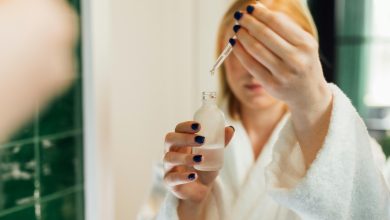Cortisone injection will rid you of acne and save your awaited date

Which one of us has not suffered from acne and been affected by it at some point? And which one of us has not experienced the feeling of that annoying pimple that decides to appear a few days before an important date or a significant occasion we’ve been eagerly anticipating! What I can tell you, my friend, is that dermatology has managed to find a quick and effective solution to this problem. One injection is enough to restore your complete enthusiasm for your awaited date. Cortisone injection for treating acne can hide even the most stubborn pimple that might appear on your face, and all within 24 hours!
What is a cortisone injection for treating acne?
Firstly, you should know that these injections are generally used to treat severe inflamed acne (cystic acne), and it is not recommended for use with any other type of pimples. These injections contain a synthetic form of the mild corticosteroid hormone that is injected into large cysts of severe inflammatory acne. As an anti-inflammatory, cortisone works to reduce the swollen cyst wall, helping to diminish redness, swelling, and pain associated with severe inflammatory acne.
Cortisone injections for acne treatment work quickly. Within 24 hours, you will notice that the treated spots have become less inflamed. Although they may not disappear completely, they will become smaller and more capable of healing within a week.
Who can benefit from cortisone injections for treating acne?
As mentioned earlier, these cortisone injections do not work on regular pimples such as blackheads, whiteheads, and small pimples. They also do not reduce the accumulation of pus (a yellowish fluid, rich in protein, that accumulates at the site of infection or inflammation in the body) in swollen pimples. Instead, they are reserved for large or deep cystic acne lesions and work by reducing the inflamed tissues.
However, it is important to consult your dermatologist about cortisone injections if:
- You have been suffering from a large and inflamed pimple for several months that has not healed.
- Numerous pimples have appeared on your face in a short period, and they are severe and inflamed.
- You have an upcoming significant event (such as a wedding), and your skin has just developed pimples.
How is a cortisone injection administered for the treatment of acne?
The doctor injects a highly diluted corticosteroid directly into the pimple using a specialized needle for this purpose. The needle used in cortisone injections is much smaller than those used in vaccinations or blood draws. It is called a micro-needle, barely larger than a acupuncture needle, designed to penetrate the skin with minimal pain. However, in case of any discomfort, especially if the pimple is very large and inflamed, a dermatologist can numb the area using topical lidocaine before starting. Alternatively, the doctor may mix a local anesthetic with the fluid in the needle to automatically reduce pain after the injection. In general, the cortisone injection procedure for acne is a quick process that can be performed at your dermatologist’s clinic.
What are the benefits of cortisone injections for treating acne?
Cortisone injections provide a treatment option for acne that may be resistant to other solutions. Additionally, they can be used on both the face and body.
Since the therapeutic effects of cortisone can start immediately, the treatment can quickly improve the skin, which can be particularly beneficial if you have an upcoming event where you want to look your best.
What may be of more concern is that these cortisone injections may also reduce the chances of scarring. Despite the potent effect of these injections, they still have some negative aspects that should be taken into consideration.
What are the risks of cortisone injections for treating acne?
Like any other product, cortisone injections come with several drawbacks, including:
- Skin thinning at the injection site, which can lead to noticeable sagging in the skin where the cyst was. These sagging effects are often temporary and may resolve on their own. Otherwise, your dermatologist may recommend fillers.
- Hypopigmentation, resulting in changes in skin color and dullness, especially in individuals with darker skin tones.
How often can you undergo cortisone injections for treating acne?
You can receive multiple injections in one session, with each injection going to a different area. However, you should wait about 6 weeks between injections in the same area.
It’s important to note that these injections are intended to be a temporary treatment for specific cysts and nodules, and they are not meant to be a regular part of acne treatment or skincare routine.



